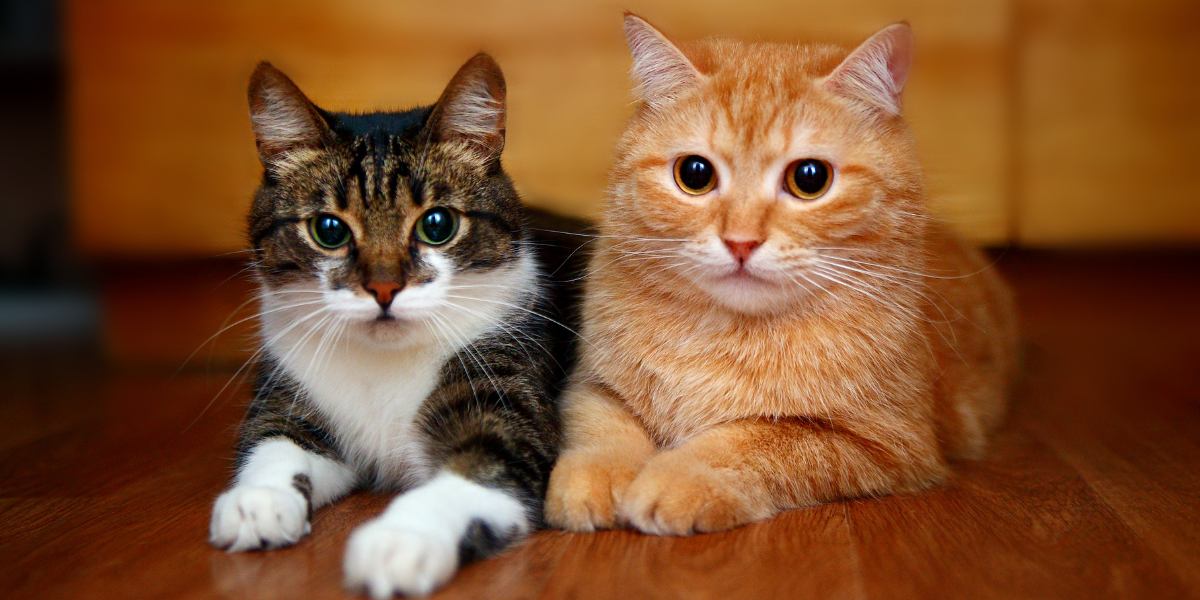
Previous studies and our own experiences have already told us that cats are capable of learning their own names. A fascinating study out of Japan, however, gives us an even deeper look into cat cognition. A team of scientists at Kyoto University set out to determine whether or not cats can learn the names of other cats, and even people. The new research was published in a peer-reviewed scientific journal, and the results are changing the way people perceive our feline pets.
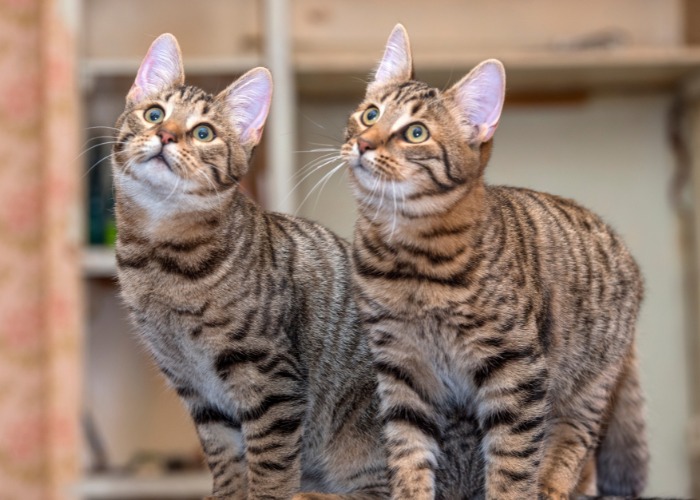
When it comes to animal smarts, dogs usually get all the credit. It’s true that you can train some dogs to recognize and associate names to people and objects, but now we know that this skill isn’t unique to our canine friends. In fact, lead researcher Saho Takagi, suggests domestic cats can learn to recognize names without any kind of formal training.
Their evidence suggests that cats learn simply by listening. Takagi said, “I want people to know the truth. Felines do not appear to listen to people’s conversations, but as a matter of fact, they do.”
To come to this conclusion, the Japanese scientists observed the behavior of 48 cats. The feline subjects either lived in multi-cat households or in cat cafés where they regularly socialized with other cats and people. Each cat was shown an image of a familiar feline (model cat) on a computer screen.
While the picture was shown, a recording of the owner’s voice either said the name of the model cat or a completely different name. The animal scientists then observed the cats’ behavior and timed how long they remained interested in the picture.
Data shows that cats from multi-cat households stared at the computer screen significantly longer when the recording said a name that did not match the model cat. Researchers theorize cats were more interested in the mismatched pictures because they had expected to hear a certain name and became confused and/or intrigued when the familiar voice said a different name.
In a secondary experiment, researchers applied the same concept to learn if the cats recognized human family members’ names. Again, the house cats seemed to be more interested in the pictures when the spoken name did not match the actual name of the familiar person. The data also suggests that these results were most prevalent for the cats that have lived with their families for longer periods of time.
The results for the cats that lived in cat cafés were more inconclusive. It’s speculated that this is because café cats have fewer opportunities for one-on-one interactions. They are exposed to many more felines and people, but their time together is usually brief. The scientists say that the frequency of exposure plays an important role in whether or not a cat learns another’s name.
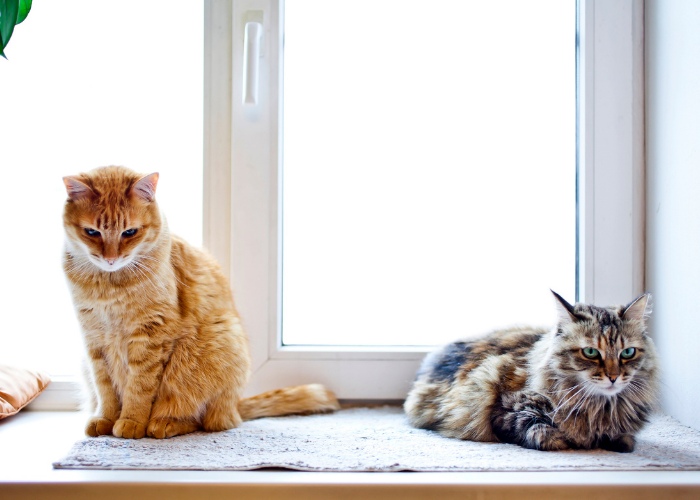
While we don’t know how it happens, this study suggests that the longer a cat lives with other cats (and humans), the more likely they are to naturally associate those individuals with their correct names. It also helps when there are multiple people in the household, as this provides ample opportunities for the cat to witness interactions and absorb associative information.
The report authors wrote, “Our interpretation is that cats living with more people have more opportunities to hear names being used than cats living with fewer people, and that living with a family for a longer time increases that experience.”
The study is only a glimpse into feline intelligence, but the findings have caught the attention of animal scientists, behaviorists, and pet owners. The next time you think your cat isn’t listening, think again.
There’s a good chance that our cats take in a lot more knowledge than we think they do. They likely know the names of their cat siblings, and your cats probably know your name as well.
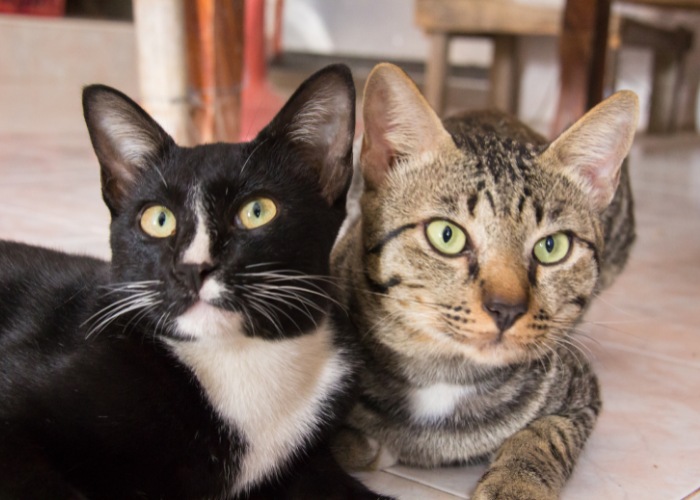






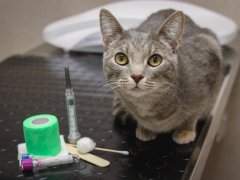

Loved the article about cats knowing names. I lost a wonderful cat a couple of months ago. I had 7 other cats and have lost another one since. But after Simon died, one of my other cats lost the fur between his ears on the back of his head. He would also walk around the house and cry for weeks. I would call him to me and he would jump on my lap. I would just tell him that Simon was gone, but it is ok. My heart was broken from losing Simon and Gray. And it was broken more for Tommy. Tommy, Simon and Baby Doll were all variations of orange cats and they sat together all the time. I asked them one time if they were racist because they preferred each other over Gray cat (who most of them didn’t like, sadly) and my other cats are variations of black. But, the three orange cats preferred each other. Such a strange thing. I had a tuxedo cat who I lost a couple of years ago. Simon loved him and Tommy.
Even some of the cats that are living outside that used to be feral seem to know their names already. It will be difficult to give them up. But they need homes and I am too old and too broke to take in any more. But I do love them. Cats are amazing, and mostly smart animals. But every one of them has a different personality and a different level of intelligence. I think the tuxedo, Patches, was an exceptionally smart cat and congregated the other cats that I had at that time and taught them how to work together to open a tote with cat food in it. They are truly amazing creatures!